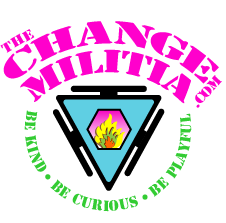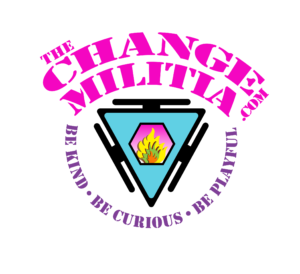{Hard Kindness} – The Internal Power Practice of Empathy and Tolerance
It’s easy being nice to nice people. They reflect warmth, affection, and gratitude. They smile and are appreciative. There is reciprocity.
In the last few months, I have begun a practice I call Hard Kindness. It involves doing nice things, good deeds, for people who aren’t nice … or who I have judged to be less than overtly kind, friendly, and sociable.
It started with new neighbors. Before they even finished moving in we heard from the previous tenant that they wanted nothing to do with the neighborhood or the people in it. They were from acreage and were temporarily slumming it in our development.
I live in a beautiful little town, in a very nice development of modest sized houses and duplexes. I love our house and we have some spectacular neighbors. Several homes have a common lawn, like ours. Our last neighbor mowed the lawn for us and got a small amount of money every month as a thank you. After he moved, I started to mow the lawn myself. For several weeks, the house was vacant and it seemed prudent and logical to mow the entire lawn. It took an extra ten minutes. No big deal.
When the new neighbors moved in, I left a fresh baked loaf of sourdough on their doorstep. They shuffled it to the side and never brought it inside. After two days, I went and got it. I buried it in the backyard with a nice marble stone with the inscription “Here lies a loaf; unsliced, unbuttered and unloved.”
Then it came time to mow the lawn. I started on my side and when I got to the dividing line, it felt petty to not mow the whole thing. I continued mowing the lawn for several weeks without it ever being acknowledged.
When my sweetheart asked why I was mowing the unfriendly neighbor’s lawn, I realized how much I didn’t like mowing their lawn. I had a ton of resistance as I mowed. I did it. I knew it was a kindness. I knew I was being neighborly but it felt arduous. I could feel the added tension in my body. I could feel my heart close down and my mind steel. I didn’t like doing something nice for those kind of people but I didn’t want to be one myself. There was no joy in the good deed.
And then I realized my problem, I had a demand. I had a demand that my kindness be rewarded. I wanted something back. I wanted payment in kind for my kindness. I had a hidden demand for admiration and appreciation. I wasn’t so proud of myself after that realization.
So, I gave what I was doing a name, because everything needs a name, and I started looking for other acts of Hard Kindness.
We have another neighbor, let’s call him Mr. Orderly. Over a year ago, my sweetheart, Kelly, was walking our dog, Ed, by Mr. O’s side yard and he walked over and scolded her when Ed walked on his property. She thought he was coming over to introduce himself but he was rude instead. She was taken aback and flabbergasted that anyone would speak to her in that way.
I started to wave to him and smile every time I walked by. I asked him about a pickup truck he had for sale. And then, I dropped off a loaf of freshly baked sourdough bread with his lovely wife. Gradually, over the next few months he became more talkative, thanked me for the bread and would always wave back.
And then it happened.
Walking by with my sweetheart, the neighbor’s dog (another hard kindness), and Ed, Mr. Orderly called out to us. We stopped and he came over. He spent the next few minutes apologizing to Kelly for his actions that day a year or more ago. He was warm and sincere. He said that wasn’t the type of person he wanted to be. His words were a gift, the gift of confirmation.
On the rest of the walk, Kelly was dumbfounded and became my first Hard Kindness Convert. She was amazed that he could be so different.
The new neighbor eventually thanked me for mowing the lawn and apologized for not thanking me sooner. And then she started mowing the lawn. We alternated, an unspoken agreement, throughout the summer.
Here is what I learned: Kindness is powerfully rewarding. Hard Kindness challenges me to let go of my judgments, intolerance, and petty insecurities. Looking for opportunities for HK occupies my mind; giving it less time to dwell on the lesser attractive aspects of my personality.
Hard Kindness requires that I put down my baggage long enough to help someone else and when I come back, there always seems to be a few less bags.
This practice is showing me the power of kindness. When I am undefended, all of my potential is available. I am strongest when I am empathetic, kind, and playful.




